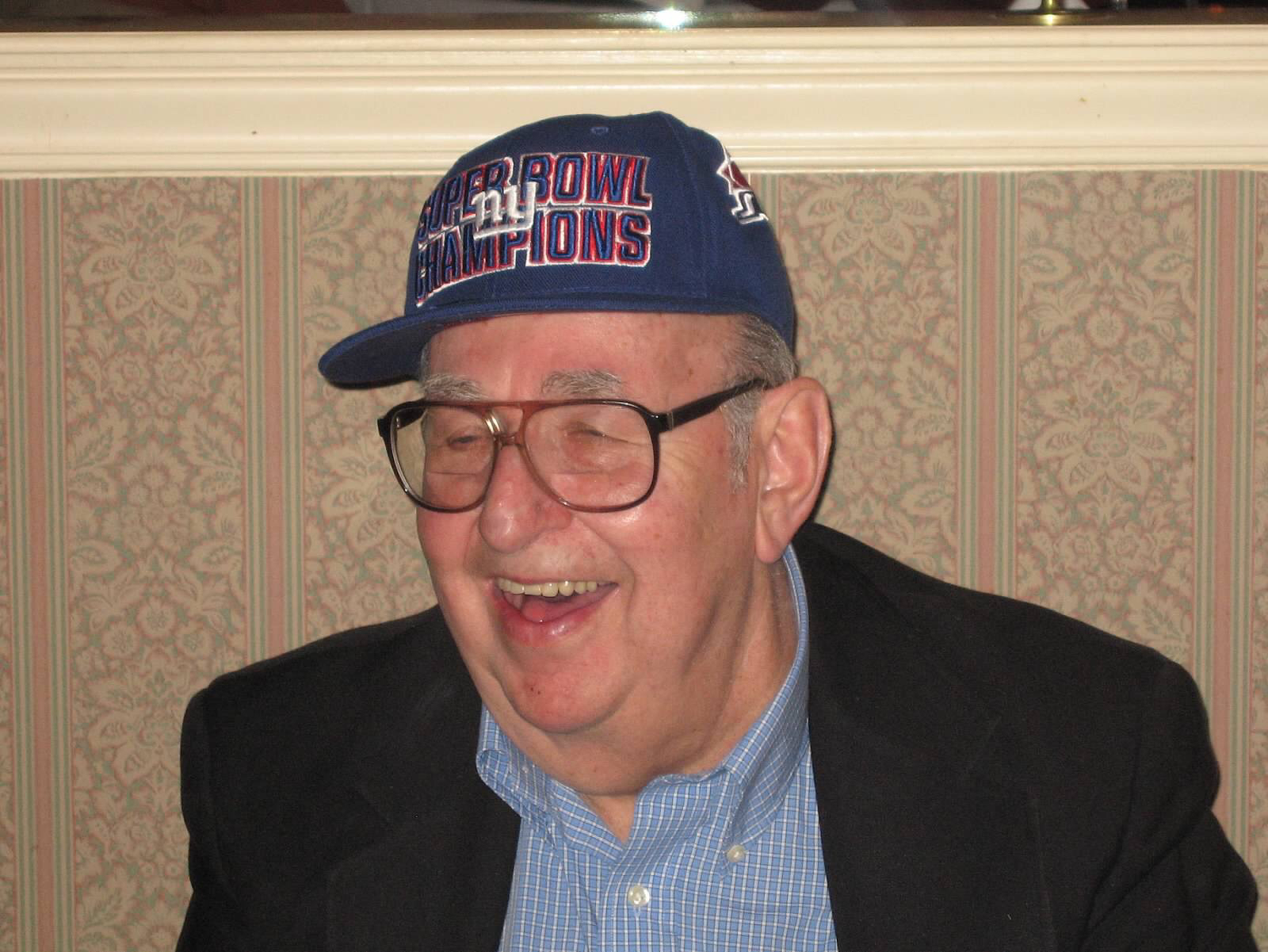Gunther Lawrence, a longtime Port Washington resident and member of the Community Synagogue, who came up with the idea of the Holocaust Menorah, which he presented to Pope John Paul II, died on Jan. 24 in Seattle. He was 89.
The menorah, which was presented to the Vatican in 1999, now sits in the Vatican gardens, and others have been donated to 12 Catholic dioceses throughout the country. The Community Synagogue in Port Washington also has one.
As the executive director of the Interreligious Information Center in Port Washington, he helped organize the first Catholic-Jewish Lay Conference in Rome in 2007, where he presented Pope Benedict XVI with a miniature version of the original five-foot menorah.
“Most of the things he did, he did for the welfare of the Jewish community,” said Bert Tobin, a longtime friend who worked on the menorah.
Lawrence, who was born in Berlin in 1927, fled Nazi Germany with his family in 1935 and arrived in the United States in 1936, landing in New York City.
His father, Julius, who was a dentist in Berlin, was unable to practice in New York because he was a refugee, so he began working with Lawrence’s mother, Lucie Sobel, making gloves, said Leah Lawrence, his wife.
Lawrence met Leah, who was visiting New York from Montreal, where she was living after her parents fled from Nazi Germany to Trinidad, and they married in 1963.
“He really loved his work and everyone he met that I can think of really liked him,” Leah Lawrence said. “He was very outgoing and was liked by people.”
After moving to Port Washington in 1976, Lawrence became an active member of the Community Synagogue and was president of the Brotherhood.
He worked in public relations and publicity for most of his life, working with many Jewish organizations and celebrities, such as Elizabeth Taylor.
He was the director of public relations for the Union of American Hebrew Congregations and the Central Conference of American Rabbis, as well as Israel Bonds and the International Information Center.
“He was an extraordinarily original person, who always came up with new, fresh ideas,” said Jack Bemporad, who worked with Lawrence at the Union of American Hebrew Congregations. “He would come up with ideas that no one else would think of, because he was a remarkable person.”
Bemporad said Lawrence’s affability allowed him to connect with high-profile people in the public relations and publishing industry, receiving praise for his books from Elie Wiesel, hanging out with the religion reporter from The New York Times and helping different celebrities throughout his career.
“They all liked him and trusted him because he was a confident, amazing man,” Bemporad said. “He was on a first-name basis with these people and they liked him because he stood up for what he believed in and stuck to his guns.”
He wrote two books: “Three Million More: The Fight for Soviet Jewry” and “The Business of Being a Jew.”
In 1963, Lawrence met the Rev. Martin Luther King Jr. during the first Civil Rights March in Washington, D.C., “which had a lasting effect on him and shaped his later career, Tobin said.
Lawrence and Leah moved to Seattle in 2014 to be closer to his family.
Leah said in the final years of his life, Lawrence suffered from Alzheimer’s disease and dementia, as well as complications from a heel injury and a kidney tumor.
He is survived by Leah; his daughter, Lucie; his son, David; and his grandchildren, Laney, Zoe, Ellie, Abby and Cooper.



